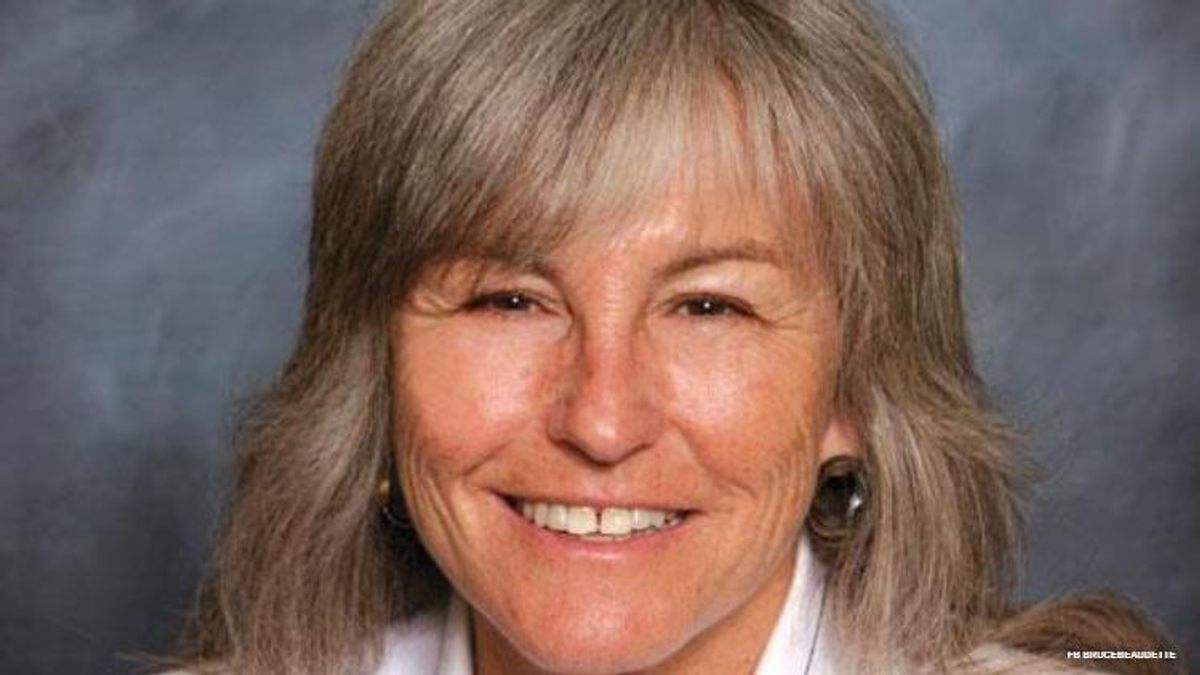While we rightly celebrate Secretary of Transportation Pete Buttigieg's historic Senate confirmation to a cabinet-level position, it's important to remember those he helped to pave the pave the way. Case in point: the first out LGBTQ+ nominee to ever gain the Senate confirmation for federal position. That honor goes to San Francisco politician and activist Roberta Achtenberg, whose 1993 hearing was a spectacle of unbridled Republican bigotry.
After years as an attorney, activist, and politician, Achtenberg gained national attention in 1992 when she delivered a speech at the Democratic National Convention, the first out lesbian to address a national convention of the two main political parties. The following year, during her confirmation hearings to become President Bill Clinton's assistant secretary for Fair Housing and Equal Opportunity, the history-maker was forced to stand up to a withering tirade of hate and abuse.
Despite her obvious qualifications for the job, Republican senators did their best to smear Achtenberg with accusations she was pushy, intolerant, vindictive, and, well, a lesbian.
"We are crossing the threshold into the first time in the history of America that a homosexual, a lesbian, has been nominated by a president of the United States for a top job in the U.S. government," warned the late Republican senator from North Carolina, Jesse Helms, who ironically went on to describe Achtenberg as "demeaning" and "mean spirited" during debate over her nomination.
Achtenberg was eventually confirmed to the job by a 58-31 margin. She also played a role for the next Democrat in the Oval Office when she was named to the U.S. Commission on Civil Rights during the Obama administration.
Long before she became a national figure, though, the California-native had been a visible presence in LGBTQ+ activism and politics on a local level. Born in 1950 to immigrant parents (her father from the former Soviet Union and her mother from Canada), Achtenberg eventually graduated from the University of California, Berkeley. It was while at Berkeley she met and married David Chavkin. The pair later divorced amicably when Achtenberg realized she was attracted to women. While out to her family, she stayed in the closet publicly for fear of the harm such a disclosure would cause to her career as an educator and lawyer.
During this period Achtenberg centered activism in her life after observing the discrimination and marginalization of the LGBTQ+ community in housing, employment, family planning, and elsewhere. She made her first run for office with a 1988 bid for a seat in the California State Assembly. Achtenberg lost that race, but did far better than expected and used the momentum for a run the following year to fill one of five open seats on the San Francisco Board of Supervisors. She won that race, along with lesbian Carole Migden -- they were firsts.
Achtenberg was integral to the early development of legal groups advocating for LGBTQ+ rights and defending queer people against discrimination. She is a founder of the National Center for Lesbian Rights, and served in various local positions in both the public and private sector. Achtenberg was later appointed to the Board of Trustees of the California State University system, and helped found the CSU Institute for Palliative Care.
In her personal life, she met and fell in love with her former partner, Mary Morgan, a well-known and respected attorney in 1979. Two years later, Morgan was appointed to the San Francisco Municipal Court, the first for a lesbian. The couple officially became partners in 1982, and four years later Morgan gave birth to their son, Benjamin Alexander Morgan Achtenberg.
Achtenberg left a legacy with her Senate confirmation, one that James Hormel hoped to follow in four years later. As Buttigieg recalled often during his confirmation process, Hormel was nominated by Clinton to become the first out gay ambassador. He was first considered to be the ambassador for Fiji but as the country criminalized homosexuality at the time, he was nominated to be the ambassador of Luxembourg. The Senate Foreign Relations Committee approved the nomination but Republicans and the Christian Right successfully blocked the nomination. Clinton was able to appoint him later as an acting ambassador through a recess appointment.
Others have followed in other government roles and even as federal judges. Buttigieg could be joined by Rachel Levine in Biden's administration. If she does, she will be the first out trans person ever confirmed by the Senate. But, it all began with Achtenberg.
RELATED | Secretary Pete Buttigieg Is Getting a Documentary Called 'Mayor Pete'


















































































